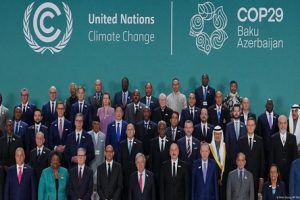
Sahle Berta, a former government employee residing in East Gurage Zone, Endibir City Administration, has successfully transitioned from unemployment to becoming a thriving dairy farmer. Sahle and his family embarked up on a new chapter of life after securing a loan of 150,000 birr from Omo Bank, which enabled them to purchase a dairy cow. With the support of the city enterprise, they now operate a dairy farm on a designated plot of land.
Their dairy farm boasts a total of approximately 12 cows, including heifers and pregnant cows, over the last three years. Currently, he has six dairy cows, which alone yields an impressive daily output of around 20 liters of milk, he told The Ethiopian Press Agency.
He stated that the assistance provided by experts from the woreda agriculture office is crucial guidance and support in vital areas such as animal feed, medical care, and other essential services.
Sahle stated that, while being an employee, he faced challenges in effectively managing his family responsibilities. However, since starting up his current private business at the dairy farm, he has managed to earn adequate income to support his family. He also added that his two children have started their own individual businesses.
In Gurage Zone, Sahle’s success story is a vibe shared by numerous individuals have witnessed life-altering transformations with limited financial resources. However, the prevalence of youth unemployment remains a pressing issue across the country. By drawing inspiration from Sahle and other successful entrepreneurs who have created their own businesses, young people can pave the way for personal and national change. With adequate support from the government, these aspiring individuals have the potential to make a profound impact on the entire country.
On the other hand, in Kembata zone Damboya wereda, the Manager of Kaniyan Combined Agriculture Investment, Veterinary Doctor Tekle Hailemaryam, stated that the updates on the dairy development project have highlighted the notable growth of the initiative, its economic impact, and its transformation of the local agricultural landscape.
The journey of Kaniyan dairy development began three years ago with an initial investment of 10 million birr and the improvement of 17 heifers. Today, the project boasts an impressive count of 65 caws, including heifers; he mentioned that the combined efforts of the dairy development project and other agricultural work have generated an astounding income of around forty million birr.
He mentioned that while a single cow typically produces between 18 and 36 liters of milk per day, their operation yields up to an impressive 300 liters daily. This abundant milk supply will be utilized to benefit vulnerable individuals and organized groups, as well as being sold at a price range of forty to fifty birr per liter, ensuring fair access to this nutritious resource.
He stated that Kaniyan business plays a significant role in generating employment opportunities for local citizens. Currently, they have a workforce of approximately 30 permanent employees and an additional 200 temporary employees. This workforce enables the department to efficiently carry out its operations while providing job opportunities for the community.
Ethiopia is one of the leading countries in Africa and one of the top ten countries in the world in terms of horned cattle wealth. In particular, it is believed that the nutritional system of society is not balanced due to the fact that the production and productivity of animal products are not developed. On the other hand, due to the inconsistency of demand and the market in the country, it was forced to import animal products such as milk from foreign countries with high foreign exchange rates.
According to the World Health Organization, it is recommended that an average person drink 200 liters per year. However, according to the Ministry of Agriculture, an average person in Ethiopia drinks only 19 liters. Various problems are cited as reasons for this. Among them, the structural problems of the country’s dairy sector are the main reason for the underdevelopment of the sector’s production and productivity. Especially given the fact that the milk value chain is lagging behind, Education research The extension system has been a hindrance to the development of the sector without updating.
Sahle mentioned the challenge faced by local dairy farmers. The area experiences a surplus of milk production compared to the existing demand, leading to occasional wastage. Recognizing this issue, the government office has urged the acquisition of milk processing equipment to address the situation effectively, he said.
Looking ahead, he emphasized the potential for growth and expansion, he also mentioned that his aspiration for improved infrastructure, including roads, water supply, and electricity, which would enable them to broaden their distribution network beyond the woreda and zone, reaching consumers in other areas.
By addressing the structural problems and investing in the dairy sector’s development, Ethiopia can significantly improve production and productivity, leading to increased availability of animal products, including milk, for its population. It will contribute to achieving a more balanced nutritional system and reduce the reliance on costly imports. Moreover, the growth of the dairy industry has the potential to create employment opportunities and drive economic development, particularly in rural areas where the majority of dairy farming takes place.
Mohammad Mudaser Deputy Head of Gurage Zone Agriculture Department Office and Head of Livestock Sector, said that a remarkable 525 dairy villages are currently being established across 10 woreda and 5 city administrations in the Gurage Zone. This strategic effort aims to enhance the dairy industry and strengthen the local agricultural sector.
He emphasized the benefits of breed improvement among farmers in the zone. He stated that every farmer is encouraged to possess at least one breed of improved dairy cow. Currently, only 23 percent of cattle breeds in the zone have undergone improvement, that nearly 22,000 cattle breeds have been successfully improved within this year alone.
In addressing the concerns raised by farmers, Mohammad remarked that the bureau is actively working towards resolving infrastructure-related issues. He recognized the significance of reliable infrastructure in supporting the growth and sustainability of the dairy industry. Through collaborative efforts, they aim to create an environment where dairy farming prospers, benefiting both farmers and the local economy.
The government’s role is vital in supporting and facilitating the growth of the dairy sector. Policy reforms, market interventions, and financial incentives can incentivize investment in the sector and create an enabling environment for businesses to thrive. Collaboration between the government, private sector stakeholders, and international development partners is crucial for implementing these reforms and driving sustainable growth in the dairy industry.
In particular, Mohammed stated the pressing need for nitrogen chemical centers, underscoring that the region currently has only one. Identifying the potential consequences of a failure in the nitrogen chemical center, the Ministry of Agriculture, along with other stakeholders, has advocated for the construction of additional nitrogen chemical centers in the region.
Sahle’s inspiring journey serves as a testament to the transformative power of determination and entrepreneurship. His dedication to dairy farming not only revitalized his own livelihood but also contributed to the local agricultural landscape.
In line with their commitment to sustainable practices, Tekle mentioned that they utilize cattle waste products as a valuable resource. These waste products are transformed into fertilizer, which is then utilized to prepare improved animal feed. Through implementing this innovative approach, they not only minimize waste but also enhance the quality and nutritional value of the feed, benefiting the overall health and productivity of the livestock.
He further stated that the initiative to convert cattle waste into biogas. By harnessing the potential of biogas, they aim to maximize the utility of the waste products and promote renewable energy sources. This not only contributes to the reduction of environmental impact but also presents an opportunity for the department to explore alternative energy solutions in the agricultural sector. Also, it contributes to the circular economy and paves the way for a more environmentally friendly and economically viable agricultural system.
In general, through their dedication, the project has not only improved livelihoods but also embraced sustainable practices, setting a strong example in the agricultural sector. The impact of their efforts will continue to ripple through the community, fostering economic growth, job opportunities, and environmental stewardship.
BY FIKADU BELAY
THE ETHIOPIAN HERALD WEDNESDAY 3 APRIL 2024





